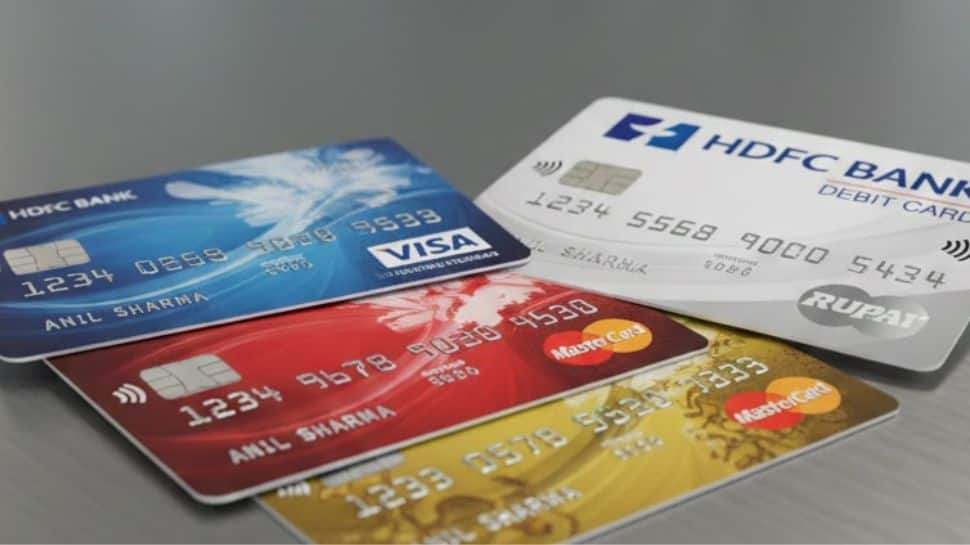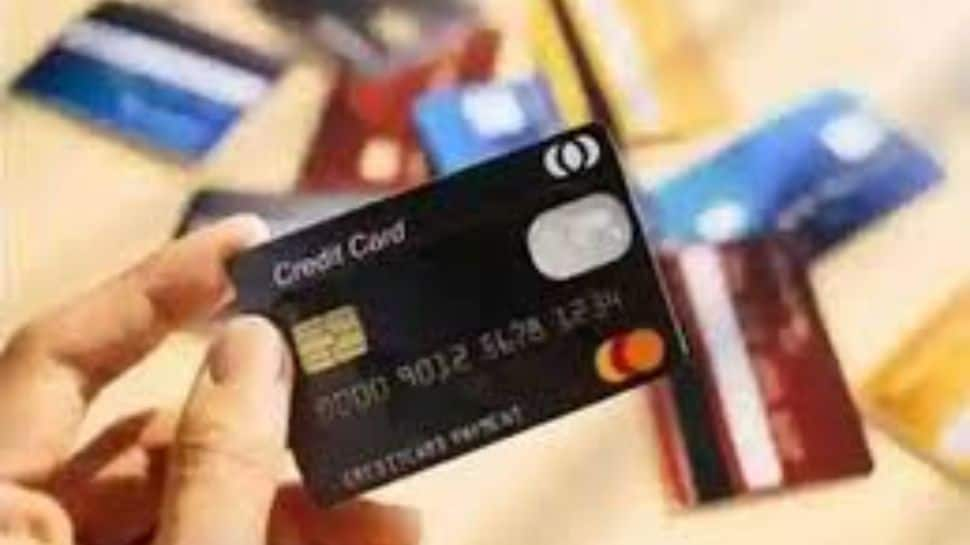Business
HDFC Bank Cash Transactions, Interest Certificate, RTGS, NEFT Latest Charges From 1 August 2025: Check Price Revision
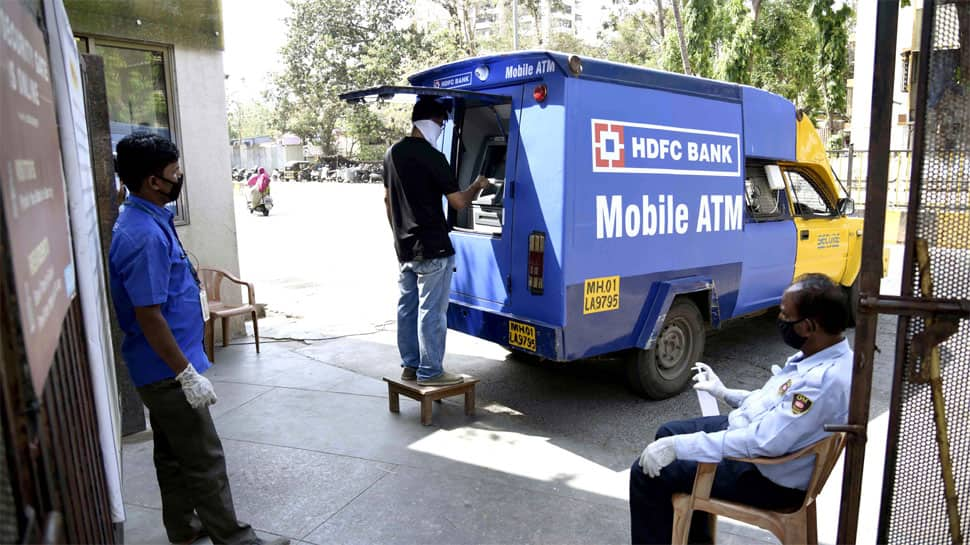
New Delhi: Private sector lender HDFC Bank has announced price revision in a host of services including Cash transactions, Interest Certificate, IMPS, RTGS and NEFT branch transactions.
Here is all you want to know about HDFC Bank service charge revision from 1 August 2025.
1. HDFC Bank Cash transactions
(Cash deposits & withdrawals) by self & third party at any Branch / Cash Recycler Machine (Deposits)
Previous Charges
Transaction – 4 Free txns /month post free limit – Rs 150/- per transaction Self + Third party * (Any Branch) Up to Rs 2 lac free per month per account, above free limit Rs 5/- per 1000 or part thereof, subject to minimum of Rs 150/- * Third party Cash transaction per day limit at Home & Non-Home branch is Rs 25,000/-. Above Rs 25,000/- not allowed.
Revised Charges (w.e.f. from 1st August 2025)
(a) No. of Transaction – 4 Free txns /month, post free limit – Rs 150/- per transaction (b) Value of Transaction – Self + Third party * (Any Branch) Up to Rs 1 lac free per month per account Above free limit – Rs 5/- per 1000 or part thereof, subject to minimum of Rs 150/- * Third party Cash transaction per day limit at any branch is Rs 25,000/- Above Rs 25,000/- not allowed.
2. HDFC Bank Services
–at Branch Premises, Balance Certificate Interest Certificate Address Confirmation Old Records / Copy of Paid Cheques
Previous Charges
Balance Certificate, Interest Certificate, Address Confirmation – Nil Old Records / Copy of Paid Cheques – Regular – Rs 80, Senior Citizen – Rs 72
Revised Charges (w.e.f. from 1st August 2025)
Per Instance: Regular – Rs 100 Senior Citizen – Rs 90 (Physically at Branch Premises)
3. HDFC Bank NEFT Transactions through HDFC Bank Branches
Previous Charges: Transaction Amount (INR)/Charges
Upto Rs 1,00,000 : Rs 2
Above Rs 1,00,000: Rs 10
Revised Charges (Effective 1st August 2025):
Transaction Amount (INR): Charges
Upto Rs 10,000: Rs 2
Above Rs 10,000 – Upto Rs 1,00,000: Rs 4
Above Rs 1,00,000 – Upto Rs 2,00,000: Rs 14
Above Rs 2,00,000: Rs 24
4. HDFC Bank IMPS Transaction Charges (Online Transactions)
Previous Charges: Transaction Amount (INR)/Charges
Upto Rs 1,000: Rs 3.50
Above Rs 1,000 – Upto Rs 1 lakh: Rs 5
Above Rs 1 lakh: Rs 15
Revised Charges (Effective 1st August 2025):
Transaction Amount (In Rupees)/Charges
Upto Rs 1,000: Rs 2.50
Above Rs 1,000 – Upto Rs 1 lakh: Rs 5
Above Rs 1 lakh: Rs 15
Charges are applicable only for outward IMPS transaction. There are no charges for inward IMPS transactions. With effect from 15th March 2021, IMPS Fund Transfer Service is free for all Imperia & Preferred Customers.
5. HDFC Bank RTGS Transactions through NetBanking & MobileBanking
RTGS transactions done online are free (w.e.f. 1st Nov 2017)
RTGS Transactions through HDFC Bank Branches previous charges
Transaction Amount/Charges
Rs 2 lakhs to Rs 5 lakhs: Rs 15
Above Rs 5 lakhs: Rs 15
Revised Charges (effective 1st August 2025):
Transaction Amount/ Charges
Rs 2 lakhs to Rs 5 lakhs: Rs 20
Above Rs 5 lakhs: Rs 45
Business
Saudi Oil Supply Assurance Lifts Pakistan Stock Market – SUCH TV

KARACHI: The Pakistan Stock Exchange rallied on Thursday after Saudi Arabia assured Pakistan of facilitating crude oil shipments through the Red Sea port of Yanbu Port, easing concerns over potential fuel supply disruptions.
The benchmark KSE-100 Index climbed sharply during the trading session, rising 4,439.93 points (2.85%) to reach an intraday high of 160,217.14 points.
Market Recovery
Analysts attributed the market rebound to renewed institutional buying and improving investor sentiment after Saudi assurances on oil supplies.
Market expert Ahsan Mehanti, CEO of Arif Habib Commodities, said easing fuel supply concerns played a key role in the recovery.
He added that rising global crude prices, expectations of a new International Monetary Fund loan tranche for Pakistan, and positive economic indicators also boosted investor confidence.
Alternative Oil Route
Pakistan sought an alternative supply route after Iran announced the closure of the Strait of Hormuz, a crucial global oil transit corridor.
Federal Petroleum Minister Ali Pervaiz Malik held talks with Nawaf bin Said Al-Malki, requesting Saudi support for uninterrupted energy supplies.
Saudi authorities reportedly assured Pakistan that oil shipments could be routed through Yanbu, and one crude vessel has already been prepared for dispatch.
Global Oil Market Impact
Oil prices continued to rise amid tensions in the Middle East conflict involving Iran, Israel and the United States.
Brent crude: up 3.26% to $83.99 per barrel
West Texas Intermediate (WTI): up 3.70% to $77.42 per barrel
Energy markets remain volatile as shipping disruptions threaten supply through the Strait of Hormuz, a route that handles nearly 20% of global oil trade.
Analysts say the Saudi assurance helped calm fears about Pakistan’s energy supply chain, contributing to the strong recovery at the PSX.
Business
Asian stocks today: Markets inch higher mirroring Wall Street gains; Kospi jumps 10%, Nikkei up 1,400 points – The Times of India

Asian stocks inched higher on Thursday, after days of trading in red amid ongoing Middle East tensions. This comes as equities were lifted by a rebound on Wall Street as oil prices paused their recent spike and economic updates painted a more positive picture of the American economy. In South Korea, Kospi hit a pause on its downward rally to add a whopping 10% or 513 points, to reach 5,606. Japan’s Nikkei 225 also climbed 2.7% to 55,713. Hong Kong’s HSI also traded in green, rising 353 points to 25,603 as of 9:10 am. Shanghai and Shenzhen added 0.9% and 1.7% respectively. Gains elsewhere in the region were more modest. Australia’s S&P/ASX 200 added 0.3% to 8,927.20, while New Zealand’s benchmark index moved 0.9% higher. In contrast, US futures indicated a subdued start ahead. Futures linked to the Dow Jones Industrial Average were almost unchanged, while S&P 500 futures ticked up 0.2%. The S&P 500 advanced 0.8% on Wednesday, clawing back much of the decline seen since the onset of the Iran conflict. The Dow Jones Industrial Average rose 0.5%, and the Nasdaq Composite outperformed with a 1.3% gain. Globally, market sentiment has remained sensitive to developments in the Middle East, with oil price swings continuing to steer trading direction. Crude prices eased during Wednesday’s session. Brent crude briefly moved above $84 a barrel before settling at $81.40, roughly matching the previous day’s level. US benchmark crude edged up 0.1% to finish at $74.66 per barrel. By early Thursday, however, oil was on the rise again. Brent crude climbed 2.4% to $83.32 per barrel, while U.S. benchmark crude jumped 2.5% to $76.53 per barrel.
Business
China sets lowest economic growth target since 1991
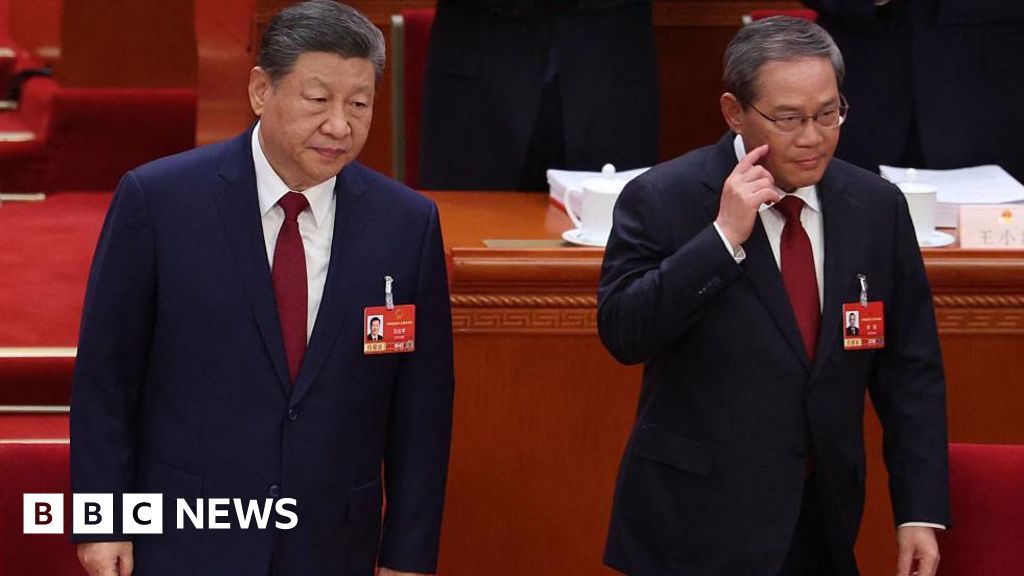
It is also the first time the target has been lowered since it was cut to “around 5%” in 2023.
Source link
-

 Business6 days ago
Business6 days agoIndia Us Trade Deal: Fresh look at India-US trade deal? May be ‘rebalanced’ if circumstances change, says Piyush Goyal – The Times of India
-

 Politics7 days ago
Politics7 days agoWhat are Iran’s ballistic missile capabilities?
-
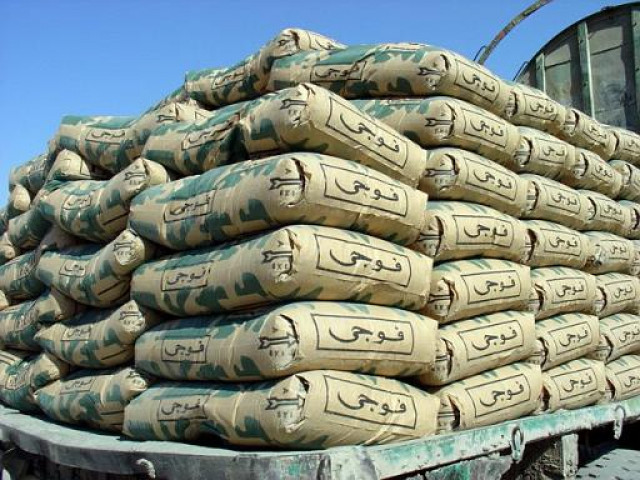
 Business7 days ago
Business7 days agoAttock Cement’s acquisition approved | The Express Tribune
-

 Business1 week ago
Business1 week agoHouseholds set for lower energy bills amid price cap shake-up
-

 Politics1 week ago
Politics1 week agoUS arrests ex-Air Force pilot for ‘training’ Chinese military
-
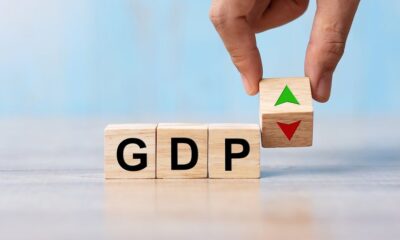
 Fashion1 week ago
Fashion1 week agoOECD GDP growth slows to 0.3% in Q4 amid mixed trends
-

 Fashion7 days ago
Fashion7 days agoPolicy easing drives Argentina’s garment import surge in 2025
-

 Sports6 days ago
Sports6 days agoLPGA legend shares her feelings about US women’s Olympic wins: ‘Gets me really emotional’


